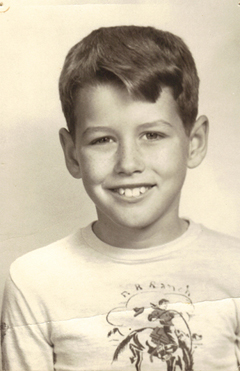An admirable trait of our challenged species is that we suffer in silence a lot. And it's sad when a person once devoted to ameliorating this suffering concludes not that they've done their best and the job was too big, but that all along they were wrong. Possibly, it was Ronald Radosh's being brought up in bourgeois "red diapers" by loving parents that instilled a softer commitment to communist ideals than others' fiercer commitments, instilled differently.
If such a thing can be, Radosh's book "Commies" is kind of a (Whittaker Chambers') "Witness" lite. And thank god for that, because books of ex-communists' expiations run to the superficial, egomaniacal and infantile stinky. The lite-er the better, I say. American flag-wavers will love this book. Many if not most others will find it superficial, egomaniacal and infantile stinky, as I did.
Consider. Radosh writes on p151 of the "Commies" paperback edition I read, that since he was "a historian" when the government released the FBI's Rosenberg files, he figured he was "the perfect person to undertake a serious effort to examine them and write a book." But just two pages later he demonstrates an inattention to his own factual narrative that would embarrass an undergraduate history major. In the second paragraph on p153, Radosh writes that what "stunned" him reading the FBI files was that the bureau's prison informant (who presumably had talked only to Julius Rosenberg) confirmed a story previously told to Radosh by Jim Weinstein about how he (Weinstein) "had (driven) Julius...from Ithaca to New York." Further on in that very paragraph, however, Radosh elaborates on what the informant told the FBI and comments on it, "(the informant)...told the FBI (that a communist party recruit, Max Finestone) had borrowed (Jim Weinstein's car) to drive Julius to Ithaca.....This of course is precisely what Jim Weinstein had related to me." No, not even close to "precisely," Ronald Radosh. The drivers and the destinations differed in the two versions of the story.
The explanation for these inconsistencies is probably trivial especially if one believes the Rosenberg case itself was fairly trivial, beyond the personal tragedies involved. But in his book, Radosh makes a lot out of his Rosenberg case research as disenchanting him with the left in general. And his failure to even notice two glaring inconsistencies in one short paragraph in "Commies" - about what he says had stunned him in his Rosenberg case research -- reduces his claim to be "a historian" to plain silliness.
On the next-to-last page of the book, Radosh muses: "Our history should have been a cautionary tale, but as the causes of yesteryear collapsed, my old friends found it hard to reevaluate their experiences or acknowledge that they were wrong." Not true again, Ronald Radosh. And especially not true of the cause you say finally convinced you that left politics were wrong - the New Left's opposition to Ronald Reagan's promotion of the Nicaragua-San Salvador war of unprecedented murderousness and devastation, ultimately funded illegally and in secret by him with Iranian arms money. The New Left's opposition to Reagan's funding and furthering murder and torture in the war, you write, was wrong because Daniel Ortega was insensitive to personal freedoms in Nicaragua. How grotesque.
No, your old lefty friends were not wrong, Ronald Radosh. On the contrary, although as prone to overzealousness and impatience as to long and debilitating periods of quiescence, lefties have never been wrong. We've just always had trouble with the timing.
(Review written in 2004)





